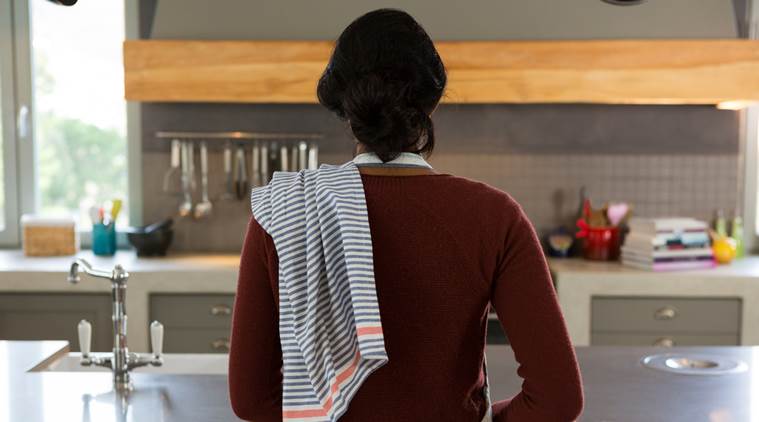
She wasn’t one to make a quiet entry. Between 9.30 and 10.30 every morning, Damini tai would set the pace as she would walk in, either commenting on the rising prices of groceries, what had delayed her, the weather, but mostly telling me how she had aced the vegetable market by going early and grabbing the best leafies, garlic, onions or tomatoes. She would wear a smile, unfailingly.
She worked in four homes and didn’t take long to find her slot in my “weird timings” schedule. She didn’t care much for what I did. She would mostly find me typing away on my phone and devouring the morning papers. Her understanding of my work was limited to the fact that I come home very late, my meals had no fixed timings and, except for weekends, I had no time to replenish groceries.
“Will you buy the vegetables or should I buy them?” is all that she would ask when supplies would start to run out before she realised that it had to be her, almost every time.
The idea of running a kitchen never enthused me and neither did kitchen economics. I hadn’t learnt a thing about buying right, using things in good time, letting nothing go to waste and stocking up for a rainy day. But in her, I had found my knight in a chiffon sari.
She called the shots. On days I would be too tired to even say what I’d like her to cook, she would just know what to do. A top-notch cook, she dished out a variety of cuisines, whipping up meals with whatever she could find, and never sulking over having to cook for more people on some days.
It was easy to imagine that the source of that love, tireless and abundant, was her daughter, the centre of Damini tai’s universe.
“Majhi baay (my girl)”, she would affectionately call the 18-year-old with special needs. Recently, Damini tai stopped sending her to a special school. “It was getting difficult to drop her to school every day,” she said. Some months back, she asked for a salary advance for her daughter’s medical treatment. Her world revolved around her daughter. Every time I offered her sweets, she would take them home saying, “Majhya baay la dein (I’ll give it to my girl)”. When she was late on Sundays, she would say she waited for her husband to return from his night shifts. “She is growing up and the men in the neighbourhood are home on Sundays. I can’t leave her alone. You can’t trust anyone these days,” she would say.
The last time I spoke to Damini tai over the phone in February, she said she had a cold and fever and wouldn’t be coming to work. She sounded very ill. I told her to come only when she felt better. She didn’t. I found out, only later, that she got steadily worse thereafter. I wasn’t informed that she was taken to a private clinic, and then a government hospital. She was moved to the ICU before, at age 45, she succumbed to the disease she had been taking lightly. It was pneumonia coupled with the recently-detected dengue.
She often complained of breathlessness and pain in her legs. I would ask her to slow down, sit for a while. Even when she took four days off in February for her 25th wedding anniversary, she had promised to get herself checked. I took her word for it.
On returning, she told me she went to Mahad for a family wedding. It was the first time in 18 years that she had gone outside the city. That segued into the story of her inter-caste love marriage, after which her disapproving family had distanced itself from her. “They were better off. They had warned me that I would end up in a slum. And I did,” she chuckled.
One day, when I woke up with a splitting headache, she sat me down, massaged my head and neck, and said, “We women don’t look after ourselves. You should tell me if you are not feeling well.” She had learnt to be a masseuse while working as a night ayah in a private hospital when her daughter was just a baby. “Kai saangu? Khoop kashta kele ahet me (What do I tell you? I have had to work very hard).” The smile never left her face.
We had our differences, too. She was no fan of cooking with olive oil and disapproved of the quality of vegetables I’d order online. And, when we hosted guests, my menu suggestions were often vetoed by her.
The morning in March I visited her home, for the first time, snaking through a maze of narrow lanes, I saw neighbours queuing up to the house, in doleful silence. The sound of of women wailing. “Are you her Madam?” a woman asked me. She never called me that, so the sound of it felt odd.
Her husband was inconsolable. Baay, as the whole neighbourhood calls her daughter, sat on the floor, a spitting image of Damini tai. Amid the sea of people in that tiny room, her teary eyes wandered in search of her mother.
I wasn’t feeling too different when I got back home. I stared into space for hours, floundered about and broke down as I tried to find my way in Damini tai’s kitchen.